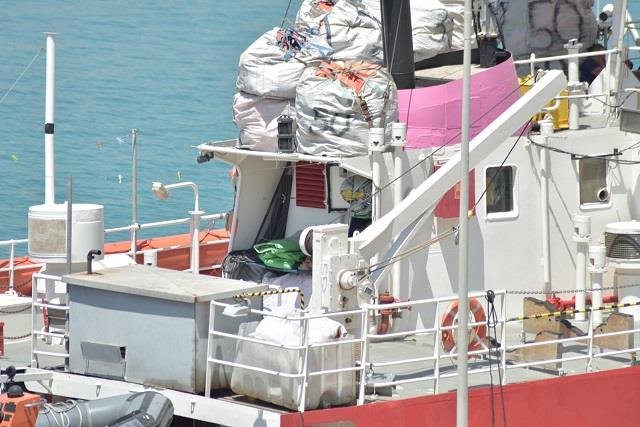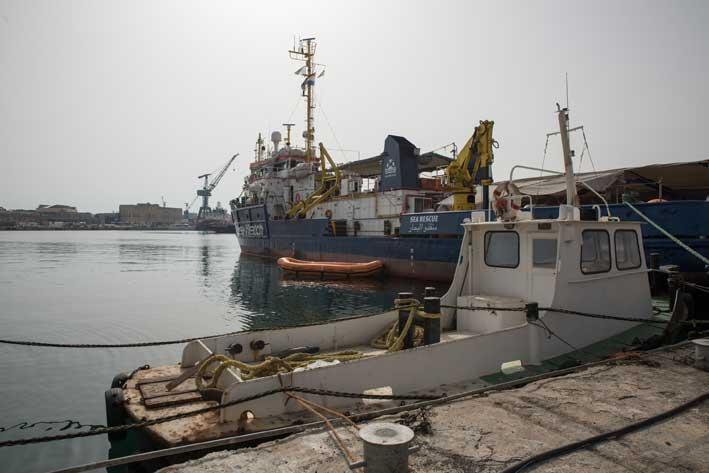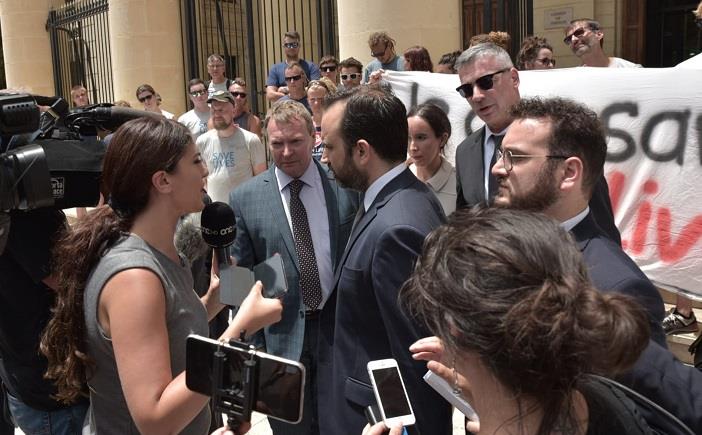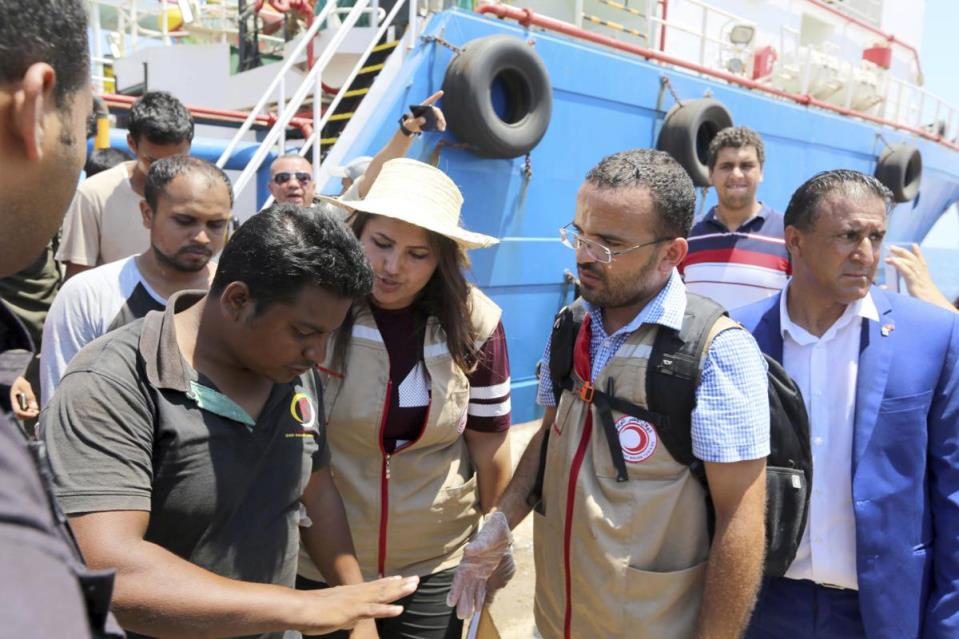Amnesty International has blasted Malta and Italy for “criminalising” migrant rescue NGOs which, it says, is the result of increased hostility by authorities towards non-governmental rescue ships patrolling the Mediterranean for calls for distress.
“The increasingly hostile treatment by Italian and Maltese authorities of non-governmental organisations dedicated to saving lives at sea is depleting the central Mediterranean of vital rescue assets. Instead of being applauded, NGOs, which in 2017 and until May 2018 had carried out about 40% of rescues, now face slander, intimidation and court cases,” the organisation said, in a 28-page report titled ‘Between the Devil and the Deep Blue Sea.’
“Longstanding, unresolved tensions in coordinating rescues at sea between Italy and Malta, which had been set aside in recent years as Italy was accepting nearly all disembarkations, have re-emerged, adding to the unpredictability of the rescue system.”
The report focuses on the central Mediterranean migrant route, with Italy, Malta, and the Libyan coastguard being put under the microscope. The report also moves on into the flaws of recent EU proposals and their personal recommendations.

In the first seven months of 2018, 1,111 people were reported dead or missing along the central Mediterranean route.
“Some deaths at sea along this perilous route are unavoidable, as long as smugglers force people to travel in unseaworthy and overcrowded boats, with no food, water, safety equipment, or sufficient fuel on board. The recent surge in deaths at sea, however, cannot be dismissed as an inescapable misfortune.”
“The increasingly hostile treatment by Italian and Maltese authorities of non-governmental organisations dedicated to saving lives at sea is depleting the central Mediterranean of vital rescue assets. Instead of being applauded, NGOs, which in 2017 and until May 2018 had carried out about 40% of rescues, now face slander, intimidation and court cases.”

International Law Obligations
“The law of the sea does not offer criteria to identify unequivocally which state has the obligation to accept the disembarkation of people rescued at sea.”
In spite of the above, rendering assistance to those in distress at sea is said to be considered a longstanding maritime tradition, accepted as customary law and codified in treaties. States are also required to work together with their neighbours with the goal of decreasing the risk of failing.
Responsibilities are also relieved from captains who are helping people in distress at sea, with disembarkation then given priority as soon as possible.
Italy’s new policy: Refusing Disembarkation
The newly appointed Italian government started the implementation of a new policy on disembarkation – to delay it or refuse it outright.
One of the pivotal moments is noted as being when it refused to authorise the Aquarius, a vessel jointly operated by NGOs SOS Mediterranee and Medecins San Frontieres(MSF), to disembark 630 people recently rescued at sea in Italy.
Following the Aquarius, Italy escalated its stance, turning away not only NGO rescue vessels, but also two foreign navy ships, 2 commercial ships, and even that Italian Coast Guard ship Diciotti.
“Italy has rightly demanded for a long time a fair sharing of responsibilities associated with the rescue of people in the central Mediterranean... However, denying disembarkation as a pressure tool to achieve responsibility sharing in the area of asylum and migration is at best irresponsible.”

Disagreements with Malta
Malta’s SAR region is disproportionately vast compared to its resources, and the country has been unable to come to an understanding regarding the region with Italy.
The SAR System only required that states coordinate rescues in their SAR regions, although not carrying them out directly has meant that Malta has heavily relied on Italy.
Malta has also not ratified the 2004 amendments to the 1974 International Convention for the Safety of Life at Sea (SOLAS) and the 1979 International Convention on Maritime Search and Rescue (SAR). This has led to the two countries being help by different versions of the two conventions.
This amendment requires that the state in charge of the SAR region where people are rescued provide a place of safety in its own territory or ensure that one is granted in another country.
The term “distress at sea” also has different interpretations for Malta and Italy. Italy regards ships to be in distress from the second they set sail because they are overcrowded, unseaworthy and lacking a professional crew, safety equipment, and adequate supplies of fuel and provisions.
On the other hand, Malta interprets that there needs to be a request of assistance and an immediate danger of loss of life.
NGOs and Solidarity under fire
“Since the beginning of 2014, Italian and other European politicians, officials and commentators have unfairly targeted rescue NGOs. Allegations against them have included claims that they colluded with smugglers; that they constituted a pull factor attracting refugees and migrants and thus contributing to the deaths at sea’ and that their sources of funding were obscure.”
Malta has also had cases where steps were taken which could be construed as purposefully targeting NGO rescue ships, the most prominent being the case of the vessel Lifeline, belonging to German NGO Mission Lifeline.

After Malta granted the Lifeline permission to disembark the 234 migrants, the authorities brought criminal charges against the captain, the charges being the irregular registration of the ship. On top of that, Malta also prevented the vessels of NGOs Sea-Watch and Seafuchs from leaving its ports to confirm they are following all the necessary international and national rules.
“The proliferation of legal cases against NGOs has contributed to a drop in dedicated and effective rescue assets in the central Mediterranean at a time of rising deaths at sea. Indeed, the NGOs Proactiva and SOS Mediterranee are currently the only operating rescue ships in the central Mediterranean. The legal challenges and consequently diminished presence of NGOs at sea, have also resulted in the removal of potentially uncomfortable witnesses to the ways in which the Libyan Coast Guard carries out interceptions at sea.”
The Libyan Coast Guard
One of the main issues with regards to Libya and its coast guard is that it is in no way a safe place for disembarking people rescued at sea.
“In a country where institutions have been weakened by years of conflict and political division, refugees and migrants are routinely exposed to horrendous abuses by Libyan officials, armed groups and criminal gangs.”
There are reports of people suffering torture and other ill-treatment in arbitrary detention with appalling conditions, extortion, forced labour and killings. Over 10,000 people are estimated to be held in DCIM detention centres.

AI repeatedly state that the European governments and institutions strengthening the Libyan authorities’ capacity and commitment to intercept refugee and migrant boats only serves to trap “women, men, and children in a cycle of abuse”.
Flaws in Recent EU Proposal
Despite the drastic reduction in crossings, AI believe that EU governments continue to treat the issue as a crisis, stoking fears and pushing for policies that “prioritize borders over human life and dignity”.
“Many of the critical issues currently experienced in the central Mediterranean are problems of Europe’s own making: by attempting to contain refugees and migrants in neighbouring countries, rather than addressing migration with joint, fair and humane policies, EU governments have triggered a vicious cycle of closure and externalization this is exacerbating rather than solving problems.”
Proposals that wish to offer additional support to countries outside of Europe also seem to strike a nerve with AI, particularly as “beneficiaries would include countries with an appalling track record on human rights, where people rescued at sea should not be disembarked – as they would risk serious human rights violations and no adequate opportunity to seek asylum”.
Recommendations
In addition to a whole slew of recommendations to remedy the current situation, Amnesty addressed Italy and Malta directly by asking to “refrain from misusing criminal law against NGOs rescuing people”, ”stop the campaign of innuendo and insinuation against them”, and to “engage in responsible public communication” whilst “applauding the work of human rights defenders engaged in saving lives”.